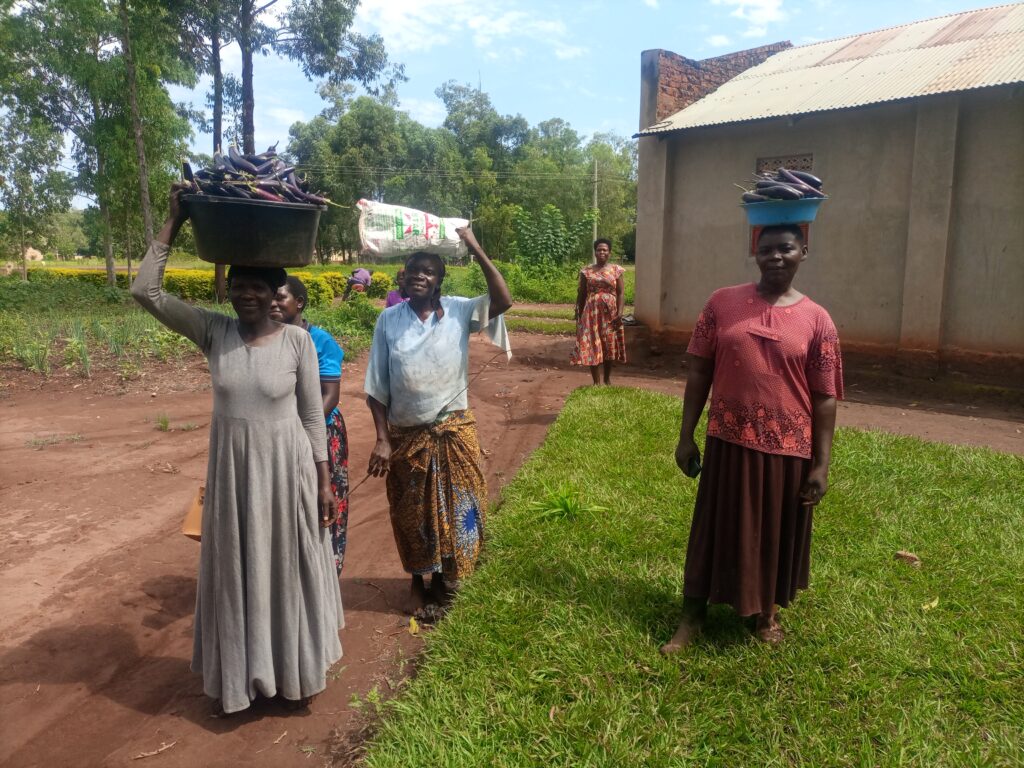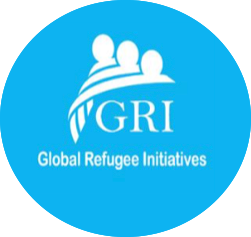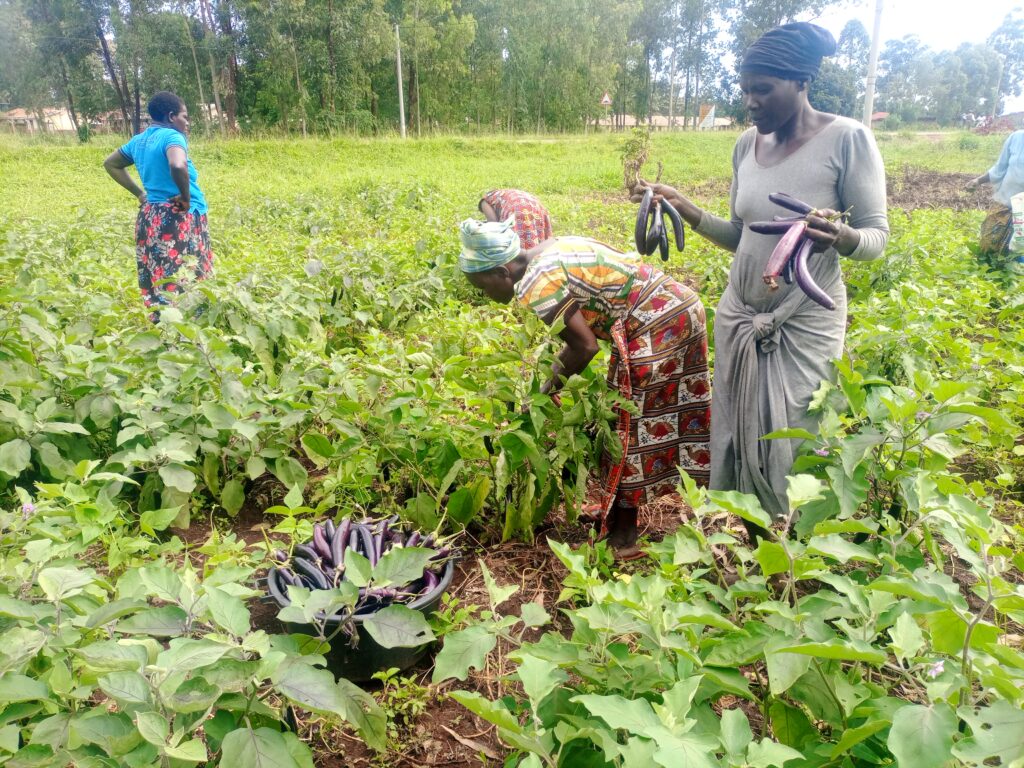
As part of the Comprehensive Refugee Response Framework (CRRF) initiative, Global Refugee Initiatives (GRI) collaborates with 200 host community church members to cultivate church land for farming projects.
The primary goal of these initiatives is to enhance resilience and self-reliance in refugee-hosting districts by producing surplus crops for food security and income generation. One such beneficiary is the YESU TWERO (an Acholi phrase meaning “Jesus is able”) farming group in Katulikile, Mutunda Sub-county, Kiryandongo District.
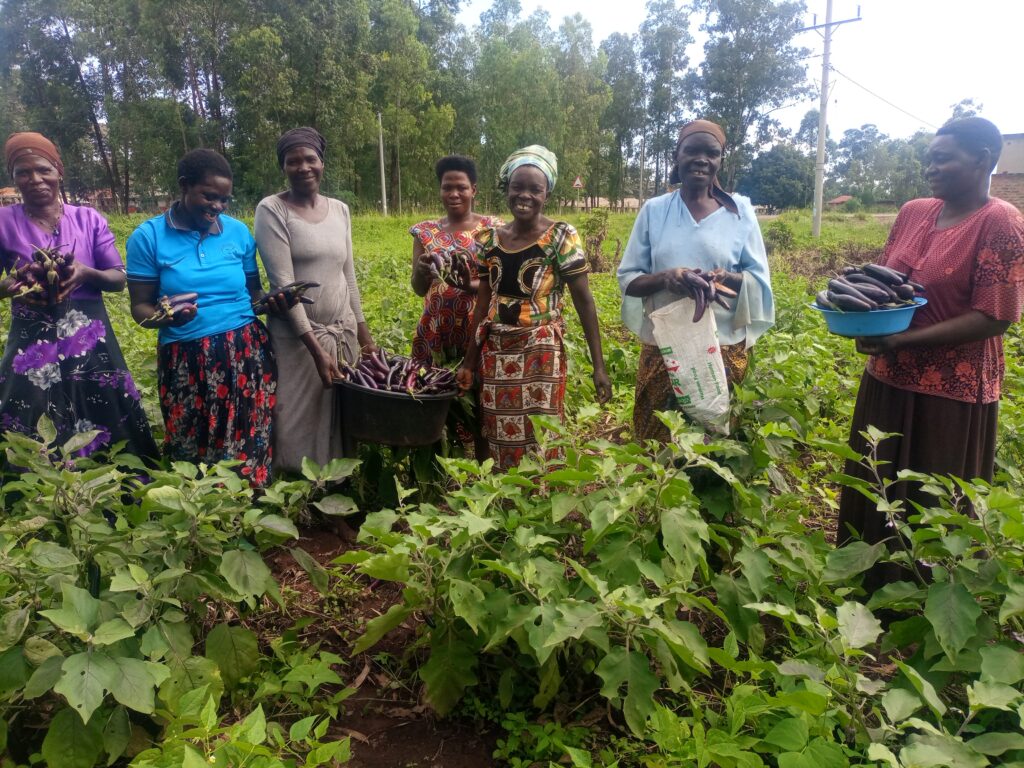
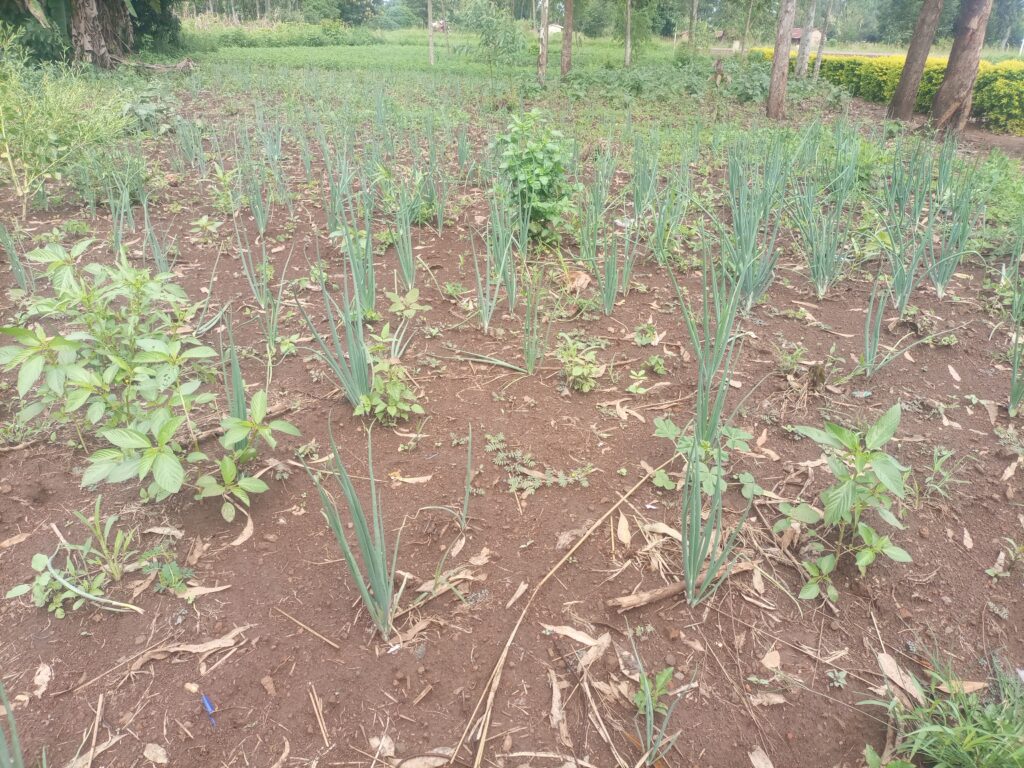
This group, consisting of 30 members, grows vegetables such as African eggplant, Sukuma wiki, and onions, primarily for income. They have collectively earned 1.5 million UGX from their produce sales, which has been reinvested in constructing a priest’s house for their church.
According to our livelihoods officer Brian Gonzaga, “Such economic empowerment activities enable church communities to undertake their projects independently of central church budgets, fostering broader community development.”
